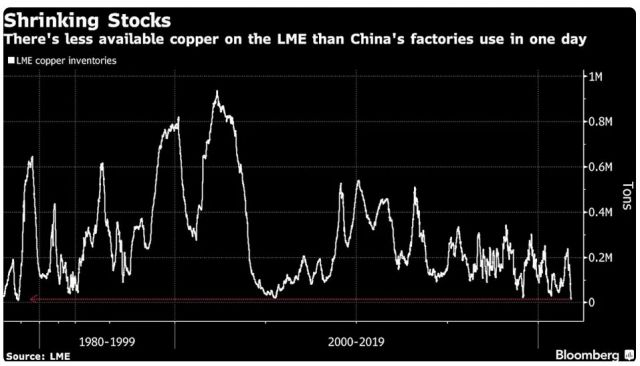
IPFS News Link • Precious Metals
What Happens if the World's Key Metal Exchange Has No Metal?
• Yahoo Finance(Bloomberg) -- What happens when the London Metal Exchange runs out of metal? That's the question the exchange is urgently trying to address for its flagship copper contract, which sets the global price for one of the world's most important commodities.
The problem stems from the LME's physical nature: anyone holding a contract to expiry becomes the owner of a package of metal in an LME warehouse. On the other hand, anyone who has sold one must deliver the metal when the contract expires.
But with available copper inventories at LME warehouses falling below 20,000 tons -- less than China's factories consume in one day -- traders are grappling with the possibility that there simply won't be metal available to deliver.
The dramatic drop in stockpiles that began in August and accelerated this month has sent the nearest LME contracts spiking to record premiums over copper for later delivery. That's particularly painful for copper fabricators -- companies that turn basic metal into things like wires, plates and tubes, and who tend to sell LME futures to hedge their price exposure.
But the emptying warehouses have also helped drive benchmark prices toward record levels and copper's pervasive role in the world means that the jump in costs will add to wide-reaching inflationary pressure for manufacturers and builders. And while mounting threats to global economic activity are raising questions about the outlook for copper demand, inventories on Chinese and U.S. rivals to the LME are also low.
Only a small fraction of the world's copper ever enters an LME warehouse, and copper users tend to have long-term contracts with producers and traders rather than seeking supplies from the exchange. Nonetheless, the fact that exchange stocks are so low -- and not just on the LME -- shows that the market's buffer has worn dangerously thin.



































